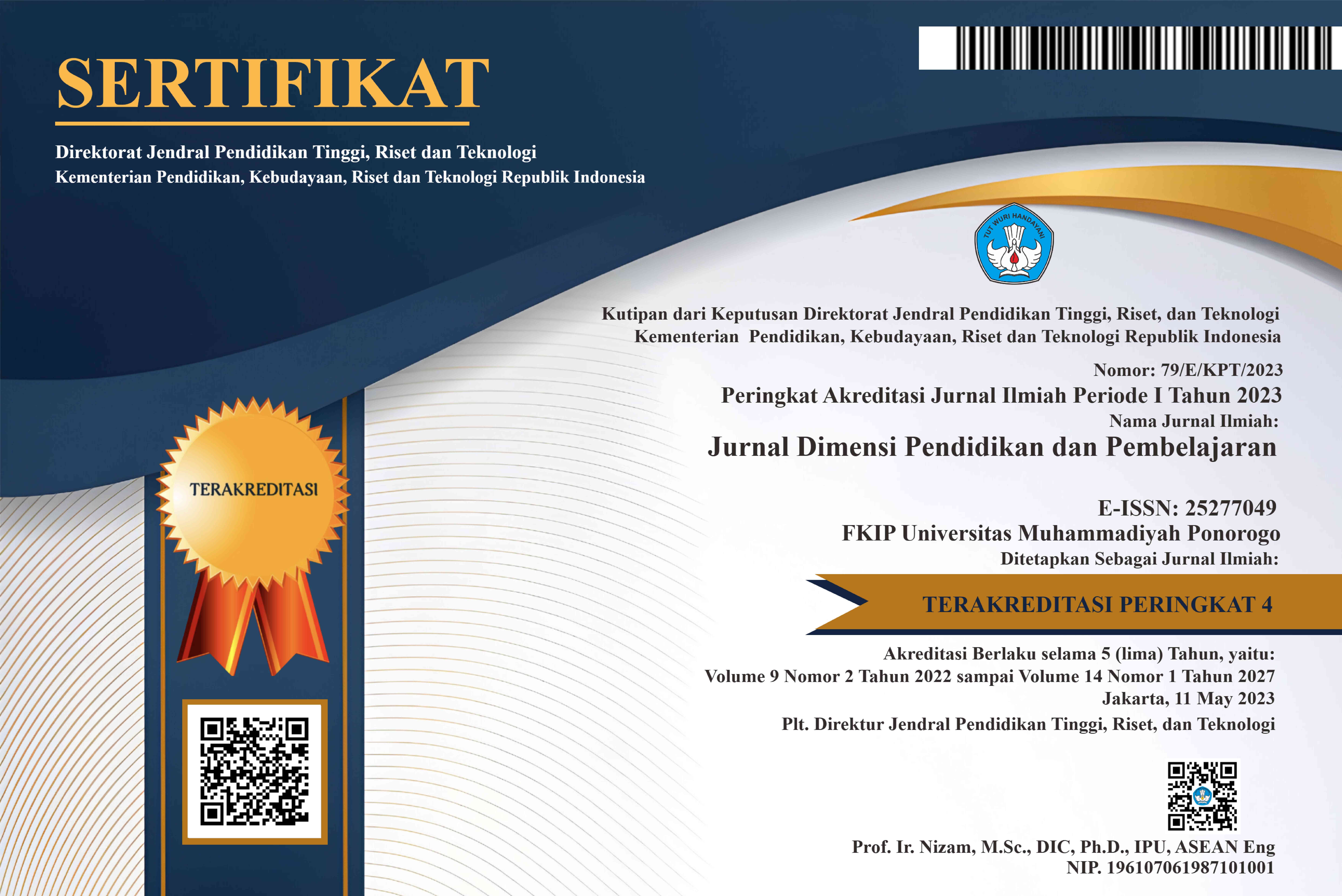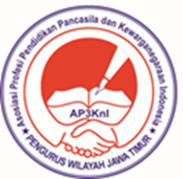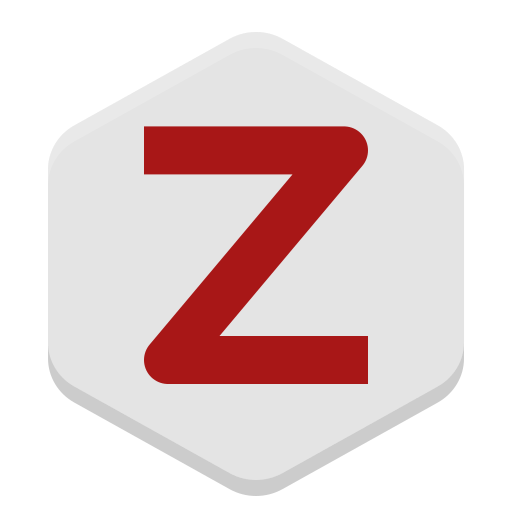Transformation of Character Education Based on THK for Elementary School Students in the Digital Era
DOI:
https://doi.org/10.24269/dpp.v13iSI1.10907Abstract
This study aims to determine the meaning of Character Education, Tri Hita Karana, Digitalization, and the transformation of character education based on Tri Hita Karana in elementary schools in the digital era. The meaning of Education. Education "is a conscious and planned effort to create a learning atmosphere and learning process so that students actively develop their potential to have spiritual religious strength, self-control, personality, intelligence, noble morals and skills needed by themselves, society, nation and state" (Law No. 20 of 2003) ". This study uses a descriptive qualitative method. This study applies secondary data, where this data is obtained from various sources in the form of books and journals that are still related to the title of the study, because this type of research is a literature study. The researcher will describe and explain in detail the meaning of Character Education, Tri Hita Karana, Digitalization, and the transformation of character education based on Tri Hita Karana in elementary schools in the digital era. Character education based on Tri Hita Karana is a relevant approach and is very much needed in forming good student personalities in the digital era. By utilizing technology wisely and integrating spiritual, social, and environmental values, students can be taught to live in harmony with God, others, and the environment. Therefore, it is important for educators to create a learning environment that prioritizes a balance between character values and the use of technology in order to form a generation that is intelligent, well-mannered, and cares about others and the environment.
References
Ade Cita putri Harahap. (2019). Character Building Pendidikan Karakter. Al-Irsyad Jurnal : Pendidikan Dan Konseling, 9(1), 1–11. https://core.ac.uk/download/pdf/287159385.pdf
Afif, N., Mukhtarom, A., Qowim, A. N., & Fauziah, E. (2024). Pendidikan Karakter Dalam Era Digital : Pengintegrasian Nilai-Nilai Moral Dalam Kurikulum Berbasis Teknologi. Tadarus Tarbawy: Jurnal Kajian Islam Dan Pendidikan, 6(1), 18–32.
Amaliyah, A., & Rahmat, A. (2021). Pengembangan Potensi Diri Peserta Didik Melalui Proses Pendidikan. Attadib: Journal of Elementary Education, 5(1), 28. https://doi.org/10.32507/attadib.v5i1.926
Dzikrulloh, M. H. A., Rondli, W. S., & Darmuki, A. (2024). Meta Analisis Pengaruh Model Pembelajaran Abad 21 terhadap Profil Pelajar Pancasila Dimensi Bernalar Kritis pada Mata Pelajaran IPA di Sekolah Dasar. Jurnal Dimensi Pendidikan Dan Pembelajaran, 12(2), 257–273. https://doi.org/10.24269/dpp.v12i2.9274
Efendi., R. (2020). Karakter di Sekolah. In Suparyanto dan Rosad (2015 (Vol. 5, Issue 3). https://qiaramedia.com/media/publications/410348-pendidikan-karakter-di-sekolah-653e8abd.pdf
Fike, E., Lestari, L., & Utami, P. S. (2024). JDPP. 12(2).
Harahap, A. C. (2019). Character Building Pendidikan Karakter. Al-Irsyad: Jurnal Pendidikan Dan Konseling, 9(No 1), 1–11.
Hayati, F. (2021). Karakteristik Perkembangan Siswa Sekolah Dasar : Sebuah Kajian Literatur. 5, 1809–1815.
Irawan, R., Hidayat, A. N., Nurmaniati, A., Sari, E., Istiqamah, I., Sari, R., & Nur, T. (2022). Bimbingan Belajar Rumberia (Rumah Belajar Ceria) Untuk Siswa Sekolah Dasar. SELAPARANG: Jurnal Pengabdian Masyarakat Berkemajuan, 6(3), 1524. https://doi.org/10.31764/jpmb.v6i3.10609
Lestari, N. A. P., I Made Sutajaya, & I Wayan Suja. (2024). Membentuk Karakter Siswa Di Sekolah Dasar Dengan Menerapkan Konsep Tri Hita Karana. Jurnal Ilmiah Pendidikan Citra Bakti, 11(1), 139–151. https://doi.org/10.38048/jipcb.v11i1.2389
Metode, P., Penguasaan, T., & Dan, M. (2024). JDPP. 12(1).
Oktavimadiana, S., & Nugrahanta, G. A. (2022). Membina Karakter Leadership Anak Usia 7-9 Tahun Dengan Permainan Tradisional. Jurnal Dimensi Pendidikan Dan Pembelajaran, 10(1), 185–201. https://seminar.umpo.ac.id/index.php/dimensi/article/download/6325/2436
Pipit Muliyah, Dyah Aminatun, Sukma Septian Nasution, Tommy Hastomo, Setiana Sri Wahyuni Sitepu, T. (2020). 済無No Title No Title No Title. Journal GEEJ, 7(2), 74–96.
Rasyid, R., Fajri, M. N., Wihda, K., Ihwan, M. Z. M., & Agus, M. F. (2024). Pentingnya Pendidikan Karakter dalam Dunia Pendidikan. Jurnal Basicedu, 8(2), 1278–1285. https://doi.org/10.31004/basicedu.v8i2.7355
Restianty, A. (2018). Literasi Digital, Sebuah Tantangan Baru Dalam Literasi Media. Gunahumas, 1(1), 72–87. https://doi.org/10.17509/ghm.v1i1.28380
Rini, R., Suryadinata, N., & Efendi, U. (2022). Literasi digital mahasiswa dan faktor-faktor yang berpengaruh. Jurnal Akuntabilitas Manajemen Pendidikan, 10(2), 171–179. https://doi.org/10.21831/jamp.v10i2.48774
Siregar, B. V., & Nugrahanta, G. A. (2022). Permainan Daerah untuk Usia 7-9 Tahun Alamat korespondensi: Universitas Sanata Dharma. Jurnal Dimensi Pendidikan Dan Pembelajaran, 10(1), 155–166. http://journal.umpo.ac.id/index.php/dimensi/index
Syaadah, R., Ary, M. H. A. A., Silitonga, N., & Rangkuty, S. F. (2023). Pendidikan Formal, Pendidikan Non Formal Dan Pendidikan Informal. Pema (Jurnal Pendidikan Dan Pengabdian Kepada Masyarakat), 2(2), 125–131. https://doi.org/10.56832/pema.v2i2.298
Syahriyah, U. U., & Zahid, A. (2022). Konsep Memanusiakan Alam dalam Kosmologi Tri Hita Karana. Panangkaran: Jurnal Penelitian Agama Dan Masyarakat, 6(1), 1–23. https://doi.org/10.14421/panangkaran.v6i1.2754
Veronika, R., Ginting, B., Arindani, D., Mega, C., Lubis, W., & Shella, A. P. (2022). Literasi digital sebagai wujud pemberdayaan masyarakat di era globalisasi. Jurnal Pasopati, 3(2), 118–122. https://ejournal2.undip.ac.id/index.php/pasopati/article/view/10869
Zain, A., & Mustain, Z. (2024). Penguatan Nilai-Nilai Spiritual dan Moralitas di Era Digital melalui Pendidikan Agama Islam. JEMARI : Jurnal Edukasi Madrasah Ibtidaiyah, 6(2), 94–103.
Downloads
Published
Issue
Section
License
Copyright
Authors who publish their manuscripts in this journal agree to the following terms:
- The copyright on each article belongs to the author.
- The author acknowledges that Jurnal Dimensi Pendidikan dan Pembelajaran has the right to be the first to publish under a Creative Commons Attribution 4.0 International (Attribution 4.0 International CC BY 4.0) license.
- Authors may submit articles separately, arranging for the non-exclusive distribution of manuscripts that have been published in this journal to other versions (e.g., sent to the author's institutional repository, publication into books, etc.), acknowledging that the manuscript was first published in the Jurnal Dimensi Pendidikan dan Pembelajaran.
Â
License
Use of the article will be governed by the Creative Commons Attribution license as currently published under the Creative Commons Attribution 4.0 International License (Attribution 4.0 International (CC BY 4.0).
Â
This license permits anyone to copy and redistribute this material in any form or format, compose, modify, and make derivatives of this material for any purpose, including commercial purposes, as long as they give credit to the author for the original work.


_001.jpg)



